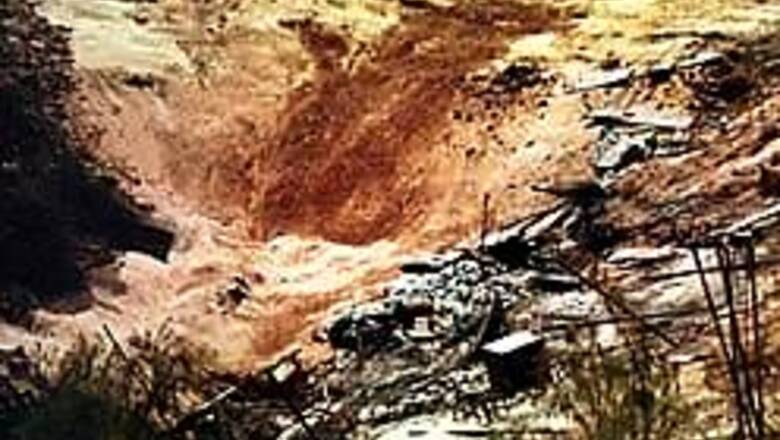
views
Washington: The United States has made it clear it expects India to adhere to its unilateral moratorium on nuclear testing, but would not spell out whether it would cut off supplies in the event of India doing so.
"I think, certainly, India's obligations under the ... 123 agreement are very clear and that the Indians have agreed to a moratorium on testing. And we expect that they will adhere to that commitment," State Department Deputy Spokesman Robert Wood said on Thursday.
Asked if this response to the question whether a nuclear weapons test by India would trigger a suspension of supplies and technology from the US and other countries under the India-US nuclear deal did not indicate some ambiguity, he said: "What I'd encourage you to do is to read the agreement."
(The implementing 123 agreement which is awaiting Congressional approval does not mention nuclear testing at all. Article 14 does provide for termination for a material violation of the agreement itself or a violation an IAEA safeguards agreement, but it also provides for consultations to "consider carefully the circumstances that may lead to termination or cessation of cooperation".
The two sides have also "agreed to take into account whether the circumstances that may lead to termination or cessation resulted from a Party's serious concern about a changed security environment or as a response to similar actions by other States which could impact national security."
In the event of termination, the agreement gives the two sides "the right to require the return by the other Party of any nuclear material, equipment, non-nuclear material or components transferred under this Agreement and any special fissionable material produced through their use."
However, none of this is automatic and it would be for the US president of the day to determine how he chooses to exercise the right, US officials including Washington's then key negotiator for the deal, Nick Burns had explained following the finalisation of the agreement in July 2007.)
In reply to another question about concerns expressed by nuclear suppliers, Wood said: "... I don't want to get into all of the discussions that are ongoing about the agreement. Obviously, a number of countries have concerns about the agreement. And they've expressed those concerns. We have tried to give answers.
"The Indians have, as well. We'll continue to do so," he said noting that the Nuclear Suppliers Group (NSG) is currently meeting in Vienna to consider a revised US draft to exempt India from its bar on nuclear trade with countries that have not signed the nuclear Non-proliferation Treaty (NPT).
"But I don't think it serves the interests of any of us to talk about, you know, negotiations that are ongoing about it, except to say that this agreement is important," he said. "We think it contributes greatly to the global non-proliferation efforts."
"And we're going to continue to work with India and the other parties concerned with this agreement. And we hope to see, you know, coming out of the NSG an exception for India to its full-scope safeguards rule," he said, outlining the next steps.
"... I don't want to speculate on things, but if, you know, that agreement is approved by the Nuclear Suppliers Group, then I believe it has to go to India's parliament, it has to approve it, and we'll obviously go from there.
"But I really don't want to jump too far ahead, because we're still, again, in the Nuclear Supplier Group - that meeting is still going on. So we hope that there will be an exception made for India," he said.
Asked a second time if Washington did or did not have an agreement with India that the supplies would be cut off in the event of a nuclear test by India, Wood repeated: "... India is engaged in a moratorium on testing. We want to see that moratorium continue. And that's our view with regard to that."
"I'm not saying that it's ambiguous, but I think it's very clear. The Indians understand what our views are with regard to nuclear testing. We've made them clear. And they understand those," he said, rejecting the suggestion that this is somehow ambiguous.
When pressed if Washington would cut off supplies, the senior State Department official said: "You're asking me to speculate on something, and I'm not going to do that. I'm just going to tell you exactly what our policy is. I'm just not going to speculate on anything."
Wood also answered a spate of questions over the release Wednesday of a Jan 16 "secret letter" by Howard L. Berman, Democratic chairman of the House Foreign Affairs Committee, suggesting the Bush administration had assured the US Congress that it would immediately terminate nuclear trade with New Delhi if it conducted a nuclear test.
The State Department's letter to Berman's predecessor, the late Tom Lantos, covered responses to 45 questions posed by members of Congress about the 123 agreement.
Denying a cover-up in seeking confidentiality for the letter, the spokesman said: "...our response to the Lantos letter was made public by Congressman Berman. And there was nothing...new in our response. It was basically a reiteration of US non-proliferation policy."
"There was no attempt to sort of, you know, cover up anything, if that's what you're implying. Not at all," Wood said, brushing off a suggestion that Washington took the confidentiality route to protect India's ruling coalition facing stiff opposition from its then Leftist allies.
"... I stand by what I just said. We've made very clear that, in that letter, what our non-proliferation is," the US official said. "... people have that interpretation, but that certainly was not the position of the United States government."




















Comments
0 comment